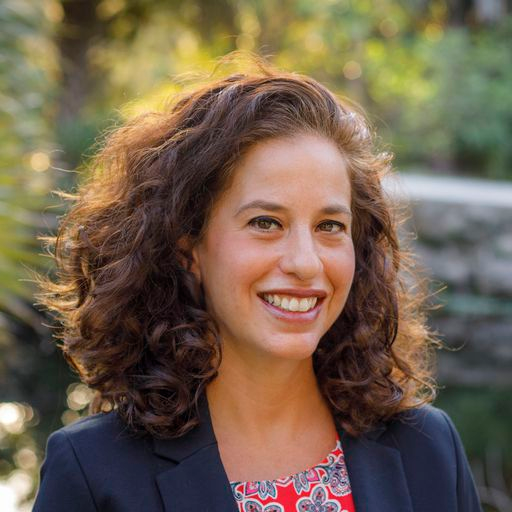Corporate America might seem like an unlikely place to look for ways to heal our country’s divisions. But the Religious Freedom and Business Foundation’s third annual Religious Equity Inclusion and Diversity Index shows that some of the nation’s biggest companies are getting it right when it comes to bringing together Americans of different faiths.
This year’s survey, which was the largest to date, assessed how Fortune 500 companies in the United States approach religious issues. American Airlines came out on top, claiming the Religious Equity Inclusion and Diversity Index’s No. 1 spot for its efforts.
Other familiar names crowded the top 10, including Intel, Dell, Texas Instruments and Google. Among the additional corporations surveyed, which included Global Fortune 500 companies and other businesses, the information technology company Accenture took first place.
The companies that ranked the highest on the Religious Equity Inclusion and Diversity Index have some common approaches, according to Brian Grim, the Religious Freedom and Business Foundation’s founding president.
“They’re not just ticking a box and having a faith-based ERG (employee resource group) or covering religious discrimination in their training. They’re having a holistic approach to religious inclusion,” said Grim, who added that the most successful corporations aren’t “just inward focused but are also willing to share their experiences with other companies.”
Businesses that want to do better in this area should look to other companies to help. “What really is the change agent is the company to company transfer of knowledge,” said Grim.
The spirit of openness — of sharing and learning — is a core component of cultivating an inclusive environment of any kind.
During Ramadan, for example, the digital infrastructure company Equinix, which ranked sixth on this year’s index, held several panels to help employees better understand the Muslim holiday. During a 2021 panel organized by Equinix — and attended by employees from Google, Salesforce, PayPal and Apple — Muslim employees shared childhood memories of Ramadan, said Marsie Sweetland, founder of Equinix’s FaithConnect initiative. The panel included a segment during which non-Muslim employees had the opportunity to ask questions like, “‘What do we say? Happy Ramadan?’”
Participants also received practical suggestions about how to be culturally sensitive, said Sweetland. “During Ramadan it might not be time to have a luncheon,” she said. “If you do, pack to-go boxes so Muslim employees can take them home” to eat after they break their fast.
Sweetland also moderated a Rosh Hashana and Yom Kippur panel during which participants learned, among other things, not to wish Jews a “Happy Yom Kippur,” as it is a solemn day of atonement.
To really succeed in fostering religious diversity, equity and inclusion, corporations need to go beyond increasing employees’ awareness of religious traditions. They need to take other concrete actions, as well, said Sumreen Ahmad, Accenture’s global change management lead and the company’s North America interfaith lead.
“You really need to be bold in this space,” said Ahmad. “It’s not just saying that this is important — it’s bold leadership taking actions that are needed (like) creating prayer space, making sure there is a drop down (on menus) that allows me to select halal or kosher food.”
Taking such steps fosters “a community of belonging so (employees) can lead from their authentic self,” she said.
Efforts to cultivate religious diversity, equity and inclusion aren’t just about making employees feel good — there’s a bottom line benefit, as well, Grim said.
“Corporate culture matters,” he said.
Not only does a more welcoming environment help companies recruit talent, it’s also a key to retaining employees, Grim added. Having a top-down, exclusive, grindstone culture saps employees’ motivation. Employees need to feel like their experiences and input are valued and like they’re part of shaping the company.
“If you feel like you don’t belong, your ideas don’t belong, your creativity doesn’t belong, your beliefs don’t belong — if you are getting the message that you don’t belong then you’ll leave it and yourself at the door and find another door to go in,” said Grim.
Addressing faith can influence product development, which is also good for the bottom line, Grim added, pointing out that, worldwide, about 8 in 10 people are religious.
Religion is an up-and-coming topic when it comes to equity, diversity and inclusion. Asked what other aspects of diversity companies should consider addressing, Ahmad and Sweetland had some ideas.
Ahmad said her company is tackling socioeconomic diversity in a number of ways, including attempts to recruit in geographically marginalized areas. “We’re going into these communities that are farther away from the big cities because there’s talent there,” she said.
Not only would a socioeconomic employee resource group be productive, Sweetland thought that Middle East and North Africa is an oft-overlooked diversity category, as well. “MENA would also be a great ERG. We have seen a few and have heard of a few popping up,” she said.


 alt=Mya Jaradat
alt=Mya Jaradat